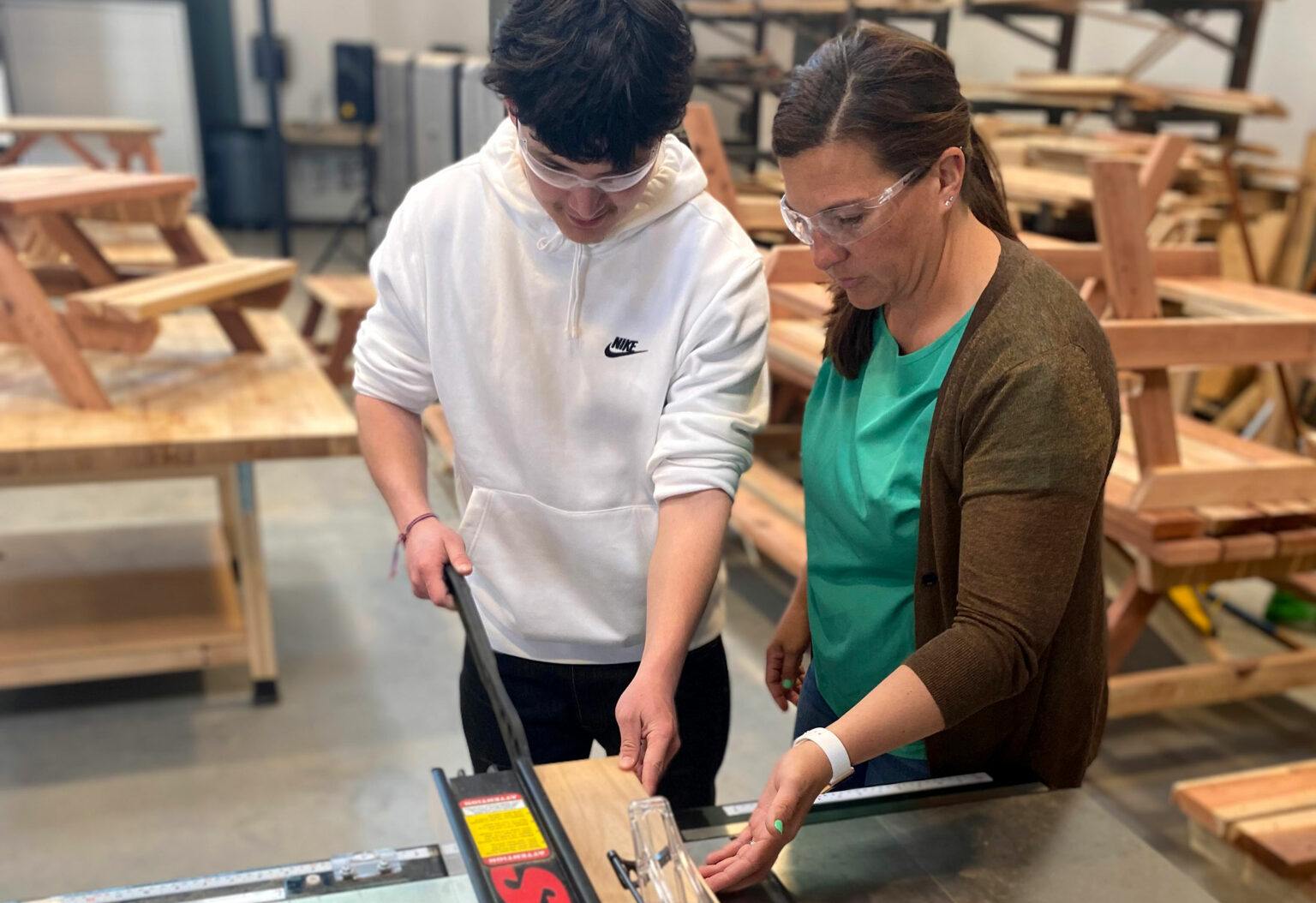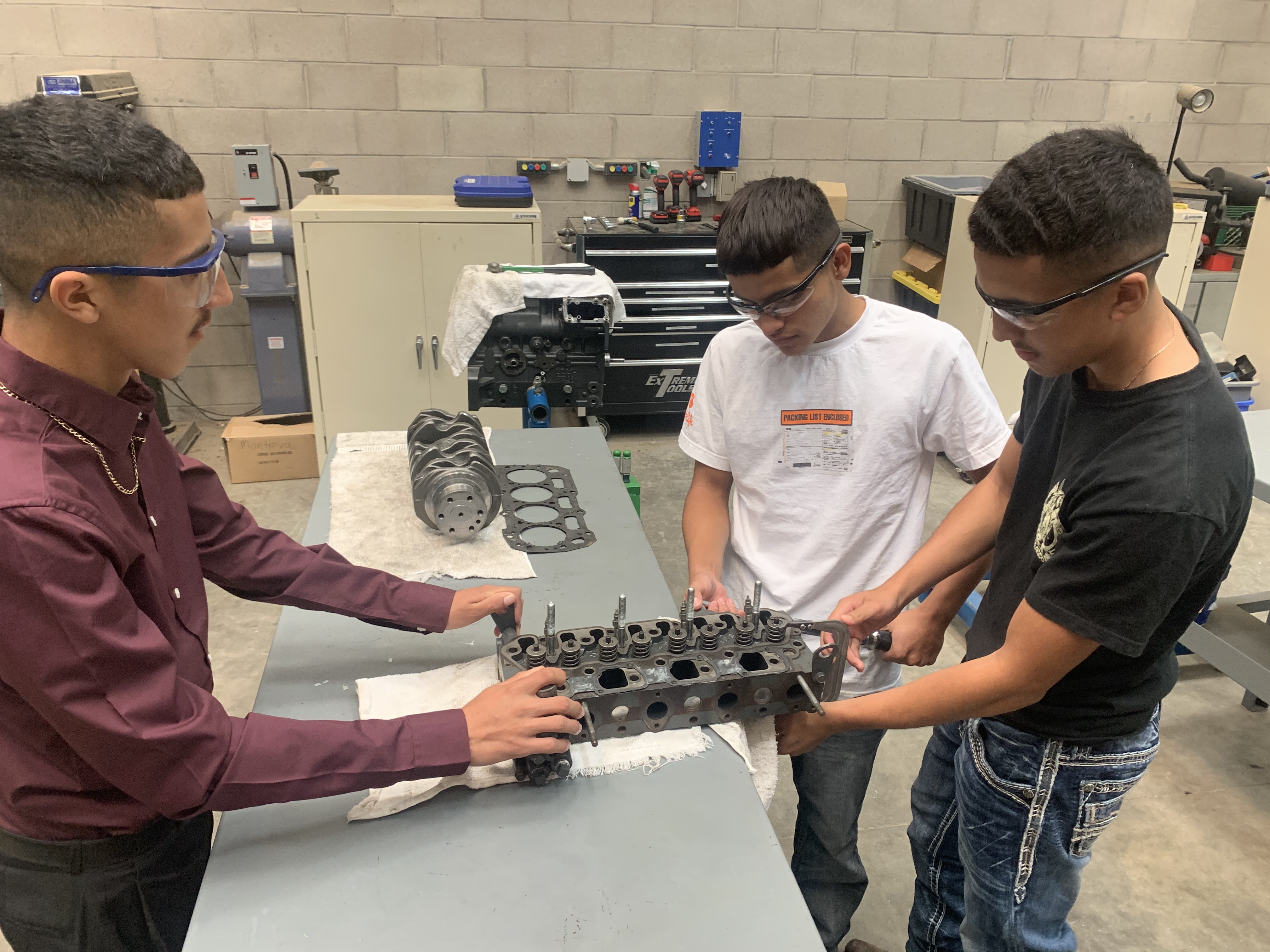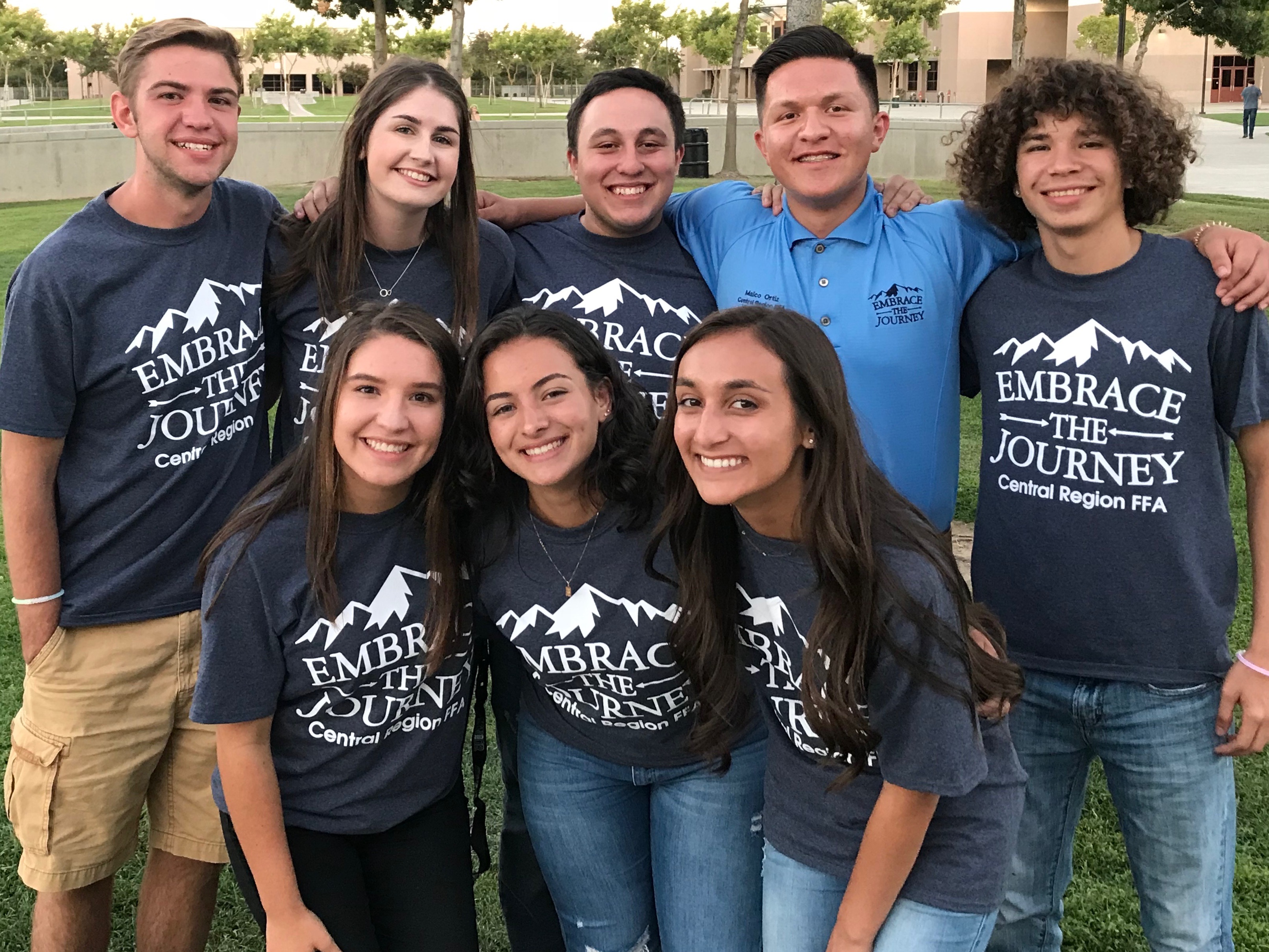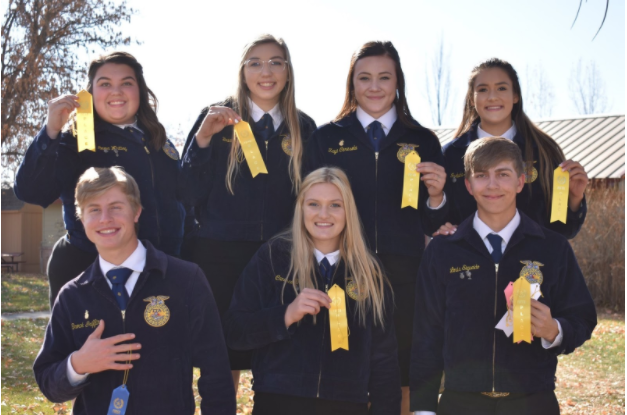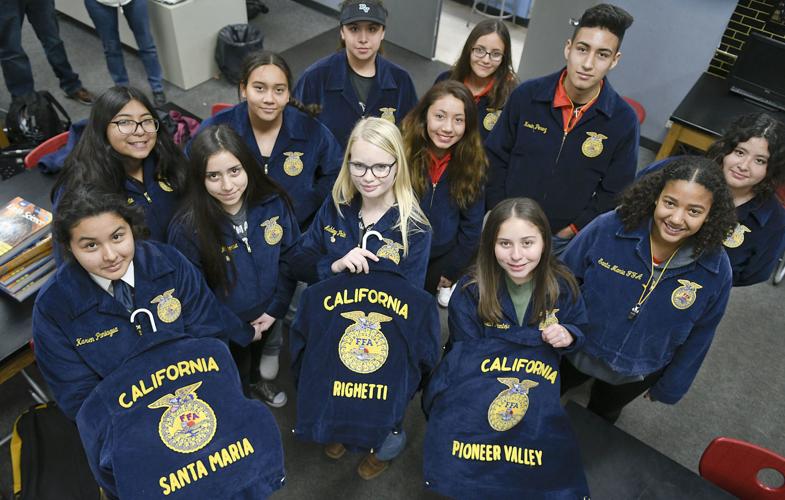By Alex C. Walker, Lemoore FFA Alumni
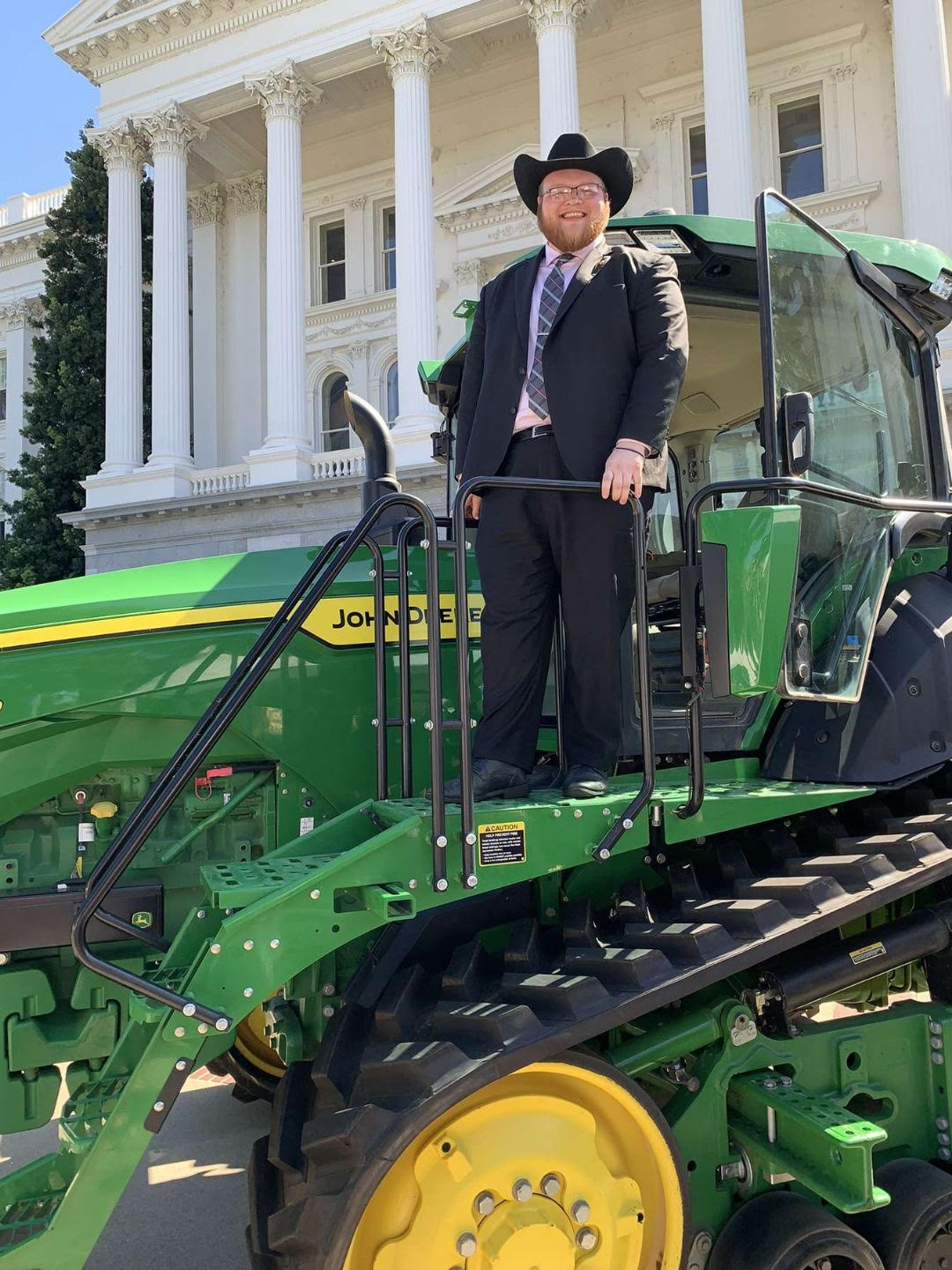 Growing up, I struggled with a speech impediment. It wasn't considered severe enough for speech therapy, so I overcame it through independent practice and patience. Though improved by high school, it remained a challenge that made me question my aspirations and desire to serve—until I joined Lemoore FFA.
Growing up, I struggled with a speech impediment. It wasn't considered severe enough for speech therapy, so I overcame it through independent practice and patience. Though improved by high school, it remained a challenge that made me question my aspirations and desire to serve—until I joined Lemoore FFA.
The FFA motto, “Learning to Do, Doing to Learn, Earning to Live, and Living to Serve,” became a guiding principle for my career and personal goals. The line “Living to Serve” particularly resonated with me and shaped my future. I fully engaged in FFA: serving two terms as a chapter officer, showing hogs, competing on judging teams, and earning my State FFA Degree. These experiences taught me the value of service and helped me overcome my speech impediment, leading to success in both FFA and speech and debate competitions. FFA also inspired my pursuit of a legal career in public service.
I currently serve as an Executive Fellow with the Capital Fellows Program. The Capital Fellows Program is hosted by California State University, Sacramento’s Center for California Studies, where fellows work full-time jobs in the three branches of our state government. As an Executive Fellow placed at the California Strategic Growth Council (SGC), I work closely with cabinet-level staff on issues facing our state, gaining experience in research, budgets, grant writing, and program administration. What motivated me to join the Capital Fellows Program was the hands-on professional work experience paired with the academic seminars, as well as the opportunities for mentorship. I wanted to deepen my understanding of public policy, contribute to projects, and enrich my strengths through personal and professional development. Serving on SGC’s Equity and Government Transformation Division and Communities Advancing Climate Equity (CACE) team, my responsibilities include leading research and analysis projects, developing language and recommendations for the California State Legislature, Governor’s Office, and SGC-member agencies. Additionally, I have authored amendments to the bylaws for the California Racial Equity Commission, drafted six grant agreements totaling $1.45 million between the State and Californian Tribes, and facilitated the approval of a nearly $800 million award portfolio for the Affordable Housing and Sustainable Communities program. I have also analyzed emerging state and national trends, issues, and political developments to inform the priorities of SGC-member agencies and the Governor’s Office. The most important lessons I learned during my fellowship, is that you can learn any skill, and that my passion truly is public service.
The greatest challenges I experienced as a fellow was the state’s current budget deficit. As part of budgetary solutions, funding for programs under my portfolio were delayed and otherwise cut from the 2024-2025 budget, impacting the communities I serve. Understanding these limitations, I coordinated with the Governor’s Office to help secure a $500,000 philanthropic investment to support a third round of SGC’s BOOST Program in Imperial Valley. My work in Imperial Valley and SGC’s BOOST Program is one of the most significant initiatives I have taken a leadership role in developing, because this funding is crucial to supporting one of California’s most vulnerable populations. Imperial Valley has some of California’s worst pollution, impacting the health and safety of its residents, is economically underdeveloped, and has a history of extraction and little investment. My work directly supports Imperial Valley communities, providing them with the resources and expertise they need to pursue other state and federal investments to improve the conditions of their communities and grow sustainably.
FFA influenced my approach to public policy by emphasizing care for people’s experiences and needs. It instilled resilience and the courage to never give up, which was crucial as I applied to the Capital Fellows Program six times before being accepted. In every interview, I shared how FFA shaped my passion for service and commitment to public policy. My proudest accomplishments aren’t in the spotlight, but in helping others. I aim to make a tangible, meaningful difference in people’s lives, and I credit FFA with giving me the values and skills to serve California. I am proud to continue “living to serve,” upholding the words that inspired me over a decade ago.

